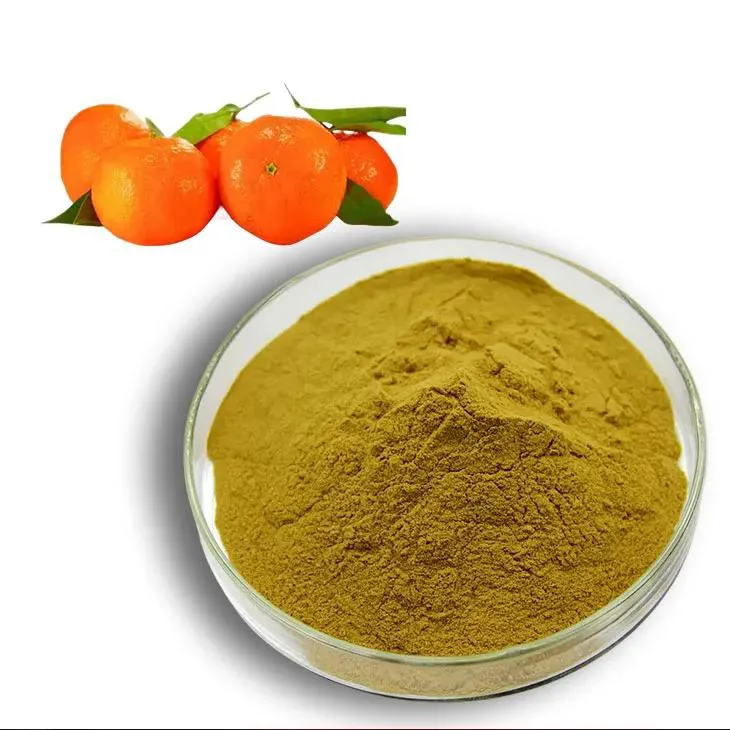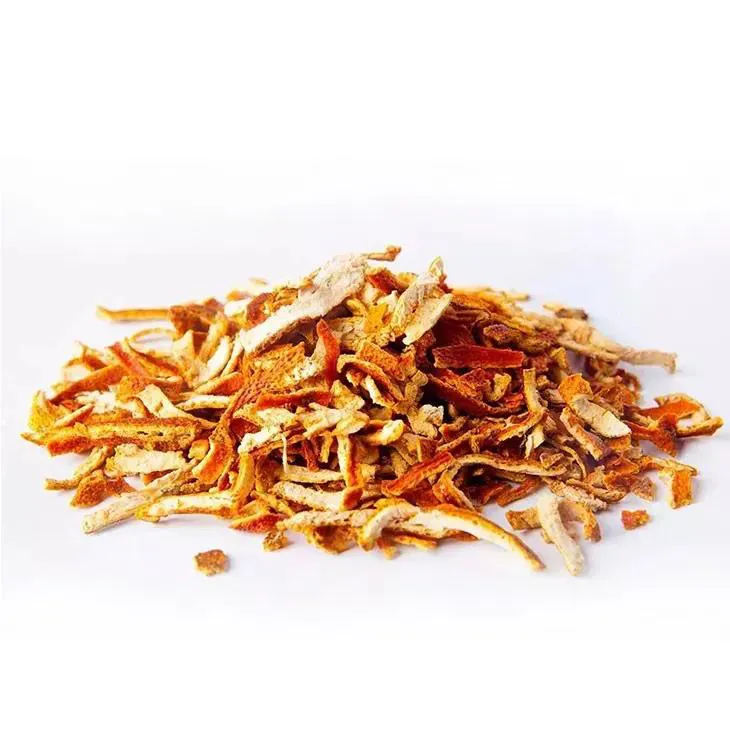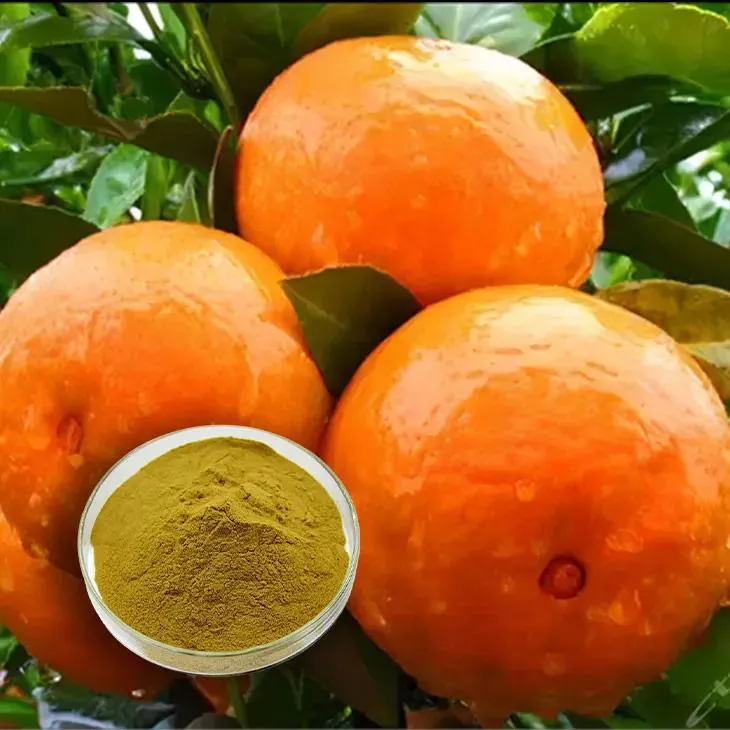- 0086-571-85302990
- sales@greenskybio.com
What Do Citrus Bioflavonoids Do? Exploring the Health Benefits and Mechanisms
2025-09-24

Citrus fruits—including oranges, lemons, grapefruits, limes, and tangerines—are prized not only for their vibrant flavor and vitamin C content, but also for their abundance of specialized plant compounds called bioflavonoids. Over the past several decades, research has revealed that citrus bioflavonoids play a vital role in human health due to their potent antioxidant, anti-inflammatory, and circulatory effects. But what exactly do citrus bioflavonoids do, how do they work, and what practical benefits can be gained from consuming them or supplementing with them? This article provides a comprehensive exploration of citrus bioflavonoids, their physiological actions, clinical relevance, and applications in everyday wellness.
Citrus Bioflavonoids: Structure, Types, and Sources
Bioflavonoids, sometimes known as flavonoids, are a vast class of phytonutrients (plant-based compounds) present in nearly all fruits and vegetables. Citrus bioflavonoids refer specifically to those found in citrus fruits. The most prominent types include:
Hesperidin: Found mainly in oranges and lemons; responsible for many vascular benefits.
Rutin: Present in a variety of citrus fruits; has anti-inflammatory and vasoprotective properties.
Quercetin: Present in citrus and many other fruits; well-known for antioxidant effects.
Naringin: Gives grapefruits their bitter flavor; contributes to metabolic and cardiovascular effects.
Diosmin: Extracted from citrus peels; often used in supplement form for venous health.
These compounds are typically located in the white pith and peel of citrus fruits. While pulp and juice contain bioflavonoids, the concentration is often higher in the outer layers—illustrating the value of whole-fruit consumption or specialized extractions.

Key Physiological Actions: How Citrus Bioflavonoids Work
Antioxidant Activity
The most celebrated property of citrus bioflavonoids is their ability to neutralize free radicals—unstable molecules generated by environmental stressors, pollution, exercise, and normal metabolism. By donating electrons or binding to these damaging molecules, bioflavonoids prevent oxidative damage to cells, proteins, lipids, and DNA.
In synergy with vitamin C, which is richly present in citrus fruit, bioflavonoids help regulate antioxidant defenses throughout the body, supporting cellular longevity and reducing the risk of chronic diseases associated with oxidative stress.
Anti-Inflammatory Effects
Chronic, low-grade inflammation underpins many age-related diseases. Citrus bioflavonoids modulate the body’s inflammatory response by inhibiting enzymes and signaling pathways (such as COX and NF-kB) involved in the production of pro-inflammatory molecules. This action helps alleviate swelling, aches, and inflammatory conditions ranging from allergies to arthritis.
Enhancing Capillary Strength and Circulation
A standout function of citrus bioflavonoids—especially hesperidin and Diosmin—is their power to strengthen capillaries, reduce their permeability, and support vascular tone. This is especially relevant for individuals prone to easy bruising, varicose veins, hemorrhoids, or chronic venous insufficiency.
Bioflavonoids bolster the structure of blood vessel walls, making them less prone to rupture or leakage. They also enhance the flow of blood through microcirculation, which benefits tissue oxygenation and overall cardiovascular health.
Support for Immune System Function
Bioflavonoids are increasingly recognized for their immunomodulatory effects. They regulate the activity of immune cells, temper allergic responses, and boost resistance to infections. Their ability to work alongside vitamin C enhances both the innate (immediate) and adaptive (memory-based) immune defenses.
Improvement of Nutrient Absorption
Citrus bioflavonoids facilitate the absorption and utilization of vitamin C, a nutrient essential for immune function, skin health, and tissue repair. Studies suggest that vitamin C present with bioflavonoids in whole fruit is more stable and bioavailable, giving an added reason to consume citrus in its natural form.
Metabolic and Cardiovascular Benefits
Some citrus bioflavonoids, such as naringin and hesperidin, have been shown to lower blood cholesterol levels, improve lipid profiles, and support healthy blood pressure. Further, their influence on fat metabolism and glucose stability makes them adjuncts in managing metabolic syndrome, diabetes, and weight control.

Clinical Applications and Evidence
Venous Health
Citrus bioflavonoids—especially as Diosmin/hesperidin combinations—are widely used in Europe and beyond for managing chronic venous insufficiency, varicose veins, and hemorrhoids. Clinical trials have demonstrated their efficacy in reducing leg heaviness, swelling, cramping, and the frequency of vascular episodes.
Allergy and Sinus Support
Quercetin, one of the key citrus-derived bioflavonoids, stabilizes mast cells and other immune cells to decrease the release of histamine, thereby lessening allergy symptoms such as sneezing, itching, and nasal congestion.
Cardioprotection
In addition to lowering cholesterol, bioflavonoids help reduce platelet aggregation, balance blood pressure, and prevent damage to blood vessel linings—all crucial for reducing cardiovascular risk.
Adjunct to Vitamin C Supplementation
When vitamin C supplements are paired with bioflavonoids, the absorption and effects of vitamin C are enhanced. This pairing is often found in immune-support formulas and antioxidant blends.

Sources and Supplementation: Food or Pills?
The richest dietary sources of citrus bioflavonoids are whole oranges, lemons, limes, grapefruits, and their peels. Marmalades, citrus zest, and specialized citrus extracts also contain high levels. While eating whole citrus fruits is ideal, supplements or concentrated extracts may be beneficial for therapeutic purposes or for those with dietary restrictions.
Supplements often contain standardized blends of hesperidin, rutin, Quercetin, and diosmin. Doses range depending on intended use but typically fall between 500 mg to 1000 mg per day for vascular support or antioxidant therapy.
Safety, Side Effects, and Interactions
Citrus bioflavonoids are safe for most people when taken through food or supplementation at recommended doses. Side effects are infrequent and mild, such as GI upset or headache at high doses. Caution is advised for those on certain medications:
Blood Thinners and Anticoagulants: Some bioflavonoids can impact blood clotting.
Statins and Hypertension Drugs: With grapefruit-derived bioflavonoids (naringin), interactions can occur affecting metabolism of drugs.
Pregnant and breastfeeding women should consult healthcare providers before high-dose supplementation.
Innovative and Everyday Uses
Citrus bioflavonoids are increasingly found in:
Functional foods (juices, bars, teas)
Skincare products, leveraging their antioxidant power for anti-aging
Pharmaceutical formulations for vascular conditions
Natural allergy remedies and immune-support blends
Practical Tips to Maximize Benefits
Consume Whole Fruit: Include citrus peels or zest in cooking for added bioflavonoids.
Combine with Vitamin C: Eat or supplement both together for synergistic effects.
Monitor Quality: Select supplements standardized for key bioflavonoids, and buy from reputable sources.
Watch for Drug Interactions: Review any regular medications with a healthcare provider before starting high-dose bioflavonoid supplements.
Conclusion
Citrus bioflavonoids represent a diverse, potent family of phytonutrients that support human health on multiple fronts—antioxidant defense, inflammation management, immune strength, circulation, and nutritional synergy. As research progresses, their full therapeutic potential is becoming clearer, confirming ancient traditions that have long celebrated the healing power of citrus fruits.
Whether through eating fresh citrus, using zest and peels in the kitchen, or supplementing wisely, incorporating citrus bioflavonoids into daily routines can contribute to vibrant health, resilience against chronic disease, and a more robust, capable immune system. Their multi-dimensional benefits are a testament to the sophistication and wisdom embedded in nature’s pharmacy.
Green Sky Bio provides the best extracts and supplements. It is a Chinese self-developed brand that is trustworthy! Welcome to email us to inquire about our products.
- ▶ Hesperidin
- ▶ Citrus Bioflavonoids
- ▶ Plant Extract
- ▶ lycopene
- ▶ Diosmin
- ▶ Grape seed extract
- ▶ Sea buckthorn Juice Powder
- ▶ Fruit Juice Powder
- ▶ Hops Extract
- ▶ Artichoke Extract
- ▶ Mushroom extract
- ▶ Astaxanthin
- ▶ Green Tea Extract
- ▶ Curcumin
- ▶ Horse Chestnut Extract
- ▶ Other Product
- ▶ Boswellia Serrata Extract
- ▶ Resveratrol
- ▶ Marigold Extract
- ▶ Grape Leaf Extract
- ▶ New Product
- ▶ Aminolevulinic acid
- ▶ Cranberry Extract
- ▶ Red Yeast Rice
- ▶ Red Wine Extract
-
Kupilu Extract
2025-09-24
-
Bamboo Leaf extract
2025-09-24
-
Boswellia Serrata Extract
2025-09-24
-
Troxerutin
2025-09-24
-
White Willow Bark Extract
2025-09-24
-
Europen Bilberry Extract
2025-09-24
-
Dan Shen Root Extract/Salvia Root Extract
2025-09-24
-
Stevia Extract
2025-09-24
-
Epimedium extract powder
2025-09-24
-
Acai Berry Extract
2025-09-24





















